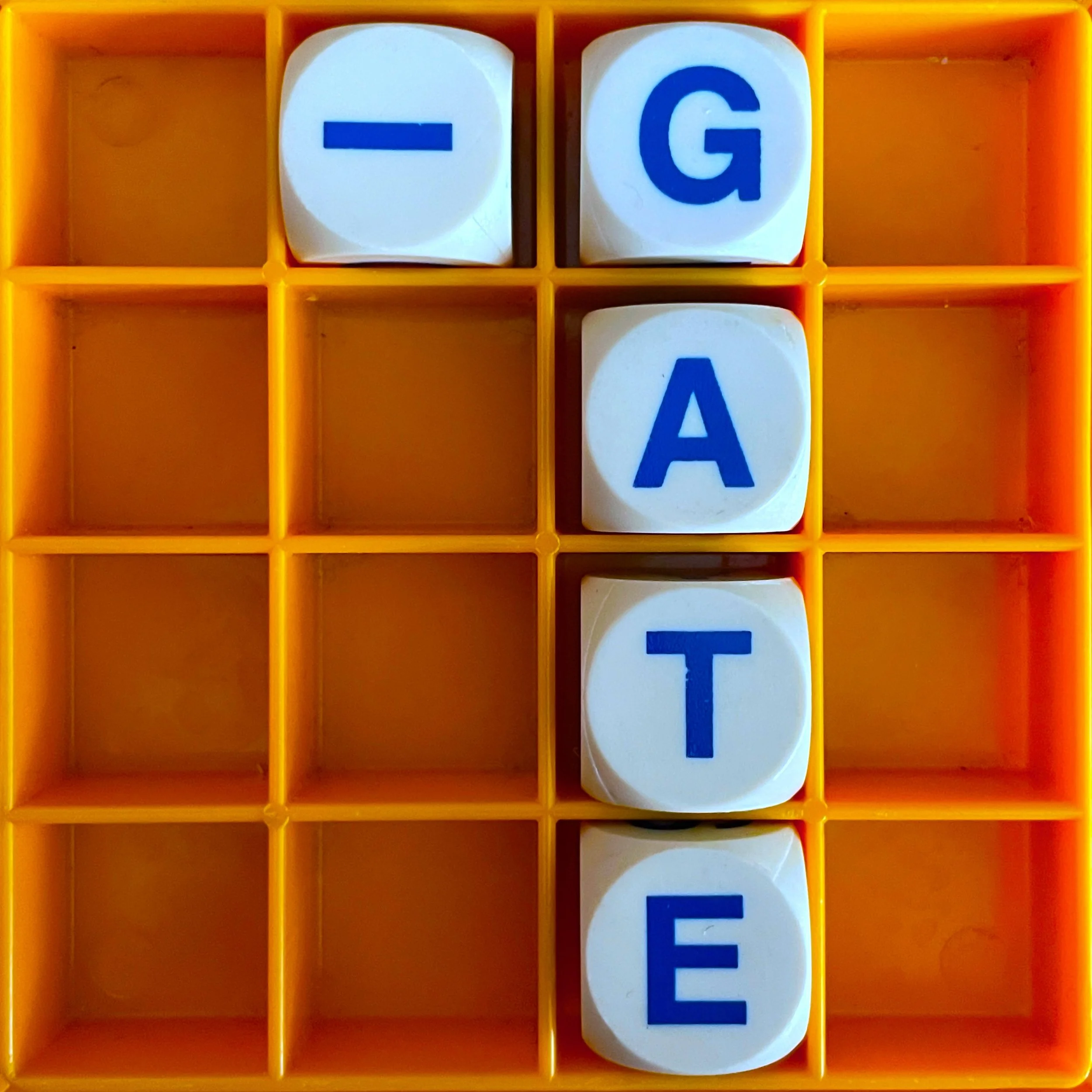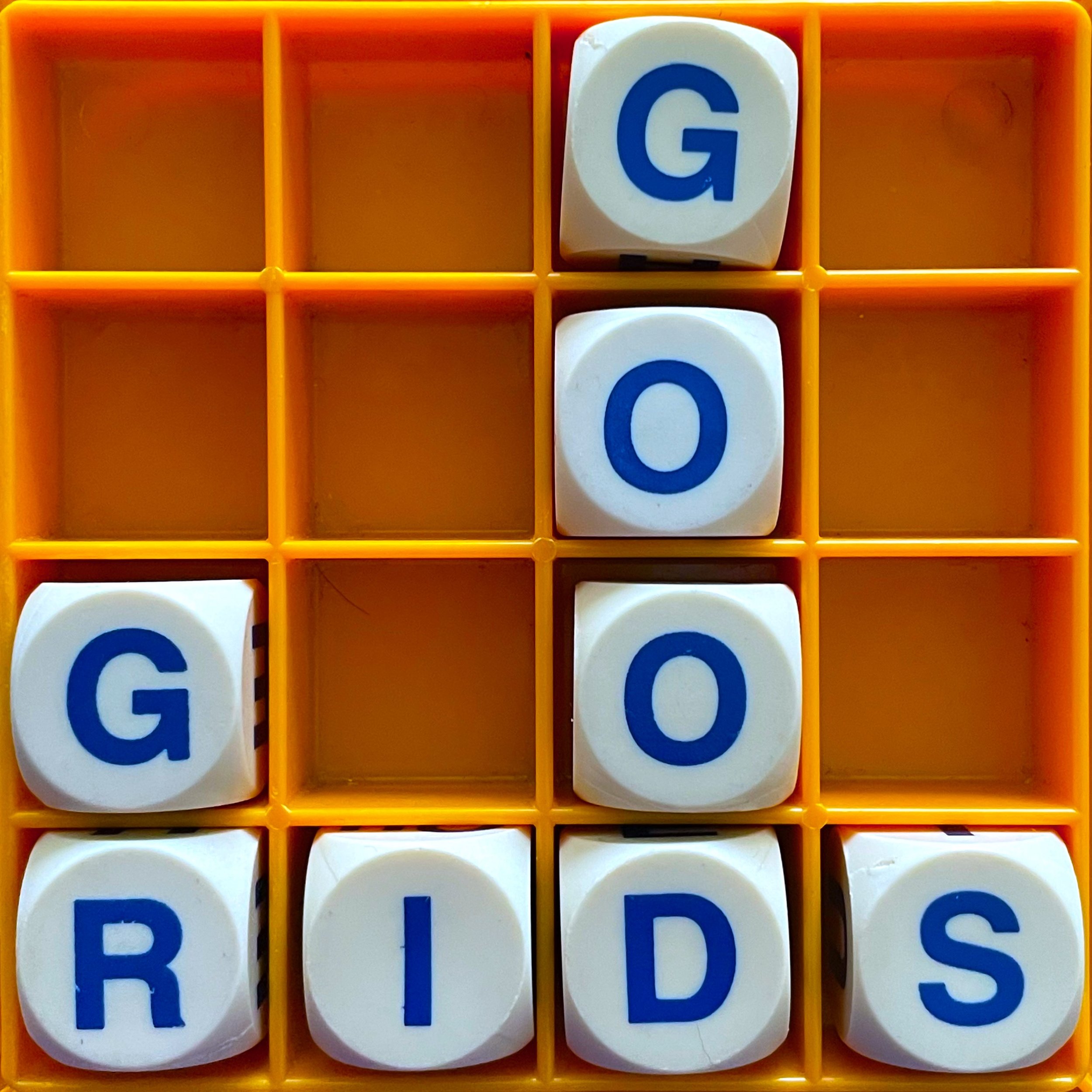Get in, winner: we're going on a field trip.
Read moreAllusionist 211. Four Letter Words: -gate
The other day was the 53rd anniversary of the break-in at the Watergate Hotel, which not only caused a lot of political uproar, it had a big linguistic legacy: the suffix -gate to mean a scandal.
Today, as part of Four Letter Word season, we have a list of -gates - royal, sporting, political, food, showbiz - it's a non-exhaustive list because there are so many, and new ones are being spawned all the time. Content warning for all sorts of bad human behaviour.
Read moreAllusionist 209. Four Letter Words: Serving C-Bomb
Ten years ago, on the fourth ever episode of the show, I investigated why the C-word is considered a worse swear than the others. Since then - well really just in the last three years or so - there has been a huge development: the word has hit the mainstream as a compliment, in the forms of serving it and -y. Linguists Nicole Holliday and Kelly Elizabeth Wright discuss these uses of the word originating in the ballroom culture of New York City in the 1990s, and what it means to turn such a strong swear into praise.
Read moreAllusionist 208. Four Letter Words: Ffff
Welcome to four letter word season!
We're kicking off with one of the most versatile words: it can be a noun, verb, punctuation, expostulation, full sentence on its own; it can be an intensifier, an insult and a compliment... and a Category A swear. Thus, of course, content note: this episode contains many category A swears, plus some sexual references.
Read moreAllusionist 203. Flyting
In 15th and 16th century Scotland, in the highest courts of the land, you'd find esteemed poets hurling insults at each other. This was flyting, a sort of medieval equivalent of battle rap, and it was so popular at the time that the King himself wrote instructions for how to do it well. Writer and Scots language campaigner Ishbel McFarlane and historical linguist Joanna Kopaczyk explain the art of flyting, where an insult becomes slander, what's going on within the speech act of performative diss-trading, and what the legal consequences could be of being accused of witchcraft.
Read moreAllusionist 201: Singlish
"If you grow up being told that one of your first languages, Singlish, is actually a bad version of an already existing language, you kind of get this sense that “I'm just bad at language,” says Bibek Gurung, a former linguist who grew up in Singapore speaking Singlish with his family and friends, while schools and the government tried to quash it. "Language is a fundamental human skill. And to just have this sense that you're bad at this very fundamental skill really does a number to your self esteem and your abilities to communicate in general."
Read moreAllusionist 198: Queer Arab Glossary
Since 2019, Marwan Kaabour has been collecting Arabic slang words used by and about queer people, first for the online community Takweer, and now the newly published Queer Arab Glossary. "When researching for this book, I discovered so much of the sociopolitical, cultural, linguistic, and historical layers that make up the words," he says. He also discovered quite a lot about frying, white beans and worms (metaphorical ones).
Read moreAllusionist 194. Word Play part 4: Good Grids
Exciting things have been happening with crossword puzzles in the US: more constructors, more outlets to get puzzles published, clues and answers that would never have appeared even a few years ago, and puzzle packs raising a whole lot of money for charities and humanitarian causes.
Read moreAllusionist 190: Craters
"It's quite a big undertaking going through every named feature in the whole solar system and trying to find out who that person was."
When PhD student Annie Lennox discovered a crater on Mercury, she got the chance to name it. Which sent her on a bigger space mission.
Allusionist 181. Cairns
There's an abiding myth that the landmark dictionaries are the work of one man, in a dusty paper-filled garrett tirelessly working away singlehandedly. But really it took a village: behind every Big Daddy of Lexicography was usually a team of women, keeping the garrett clean, organising the piles of papers, reading through all the citations, doing research, writing definitions, editing, subediting...essentially being lexicographers, without the credit or the pay.
Academic Lindsay Rose Russell, author of Women and Dictionary-Making, talks about the roles of women in lexicography: enabling male lexicographers to get the job done, but also making their own dictionaries, and challenging the very paradigms of dictionaries.










